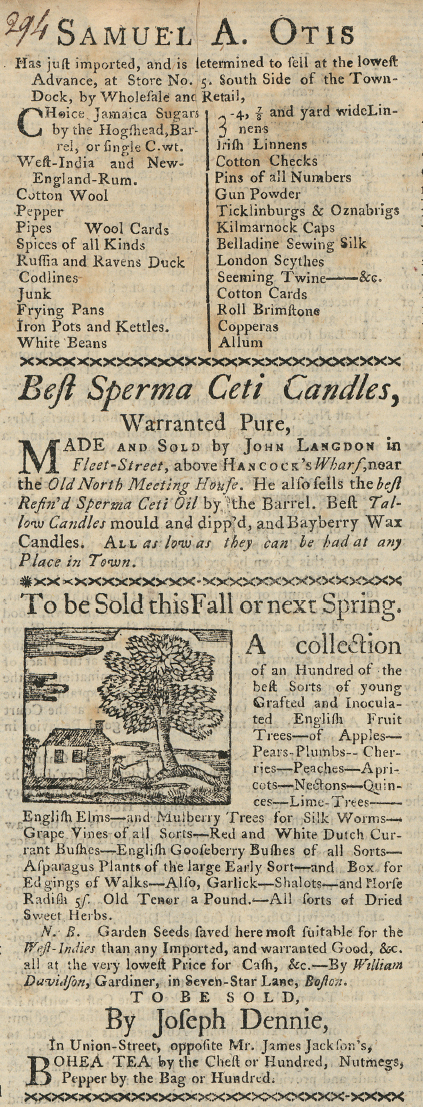Exploring American Histories: Printed Page 140
Exploring American Histories, Value Edition: Printed Page 121
Great Britain Seeks Greater Control

Until the French and Indian War, British officials and their colonial subjects coexisted in relative harmony. Economic growth led Britain to ignore much of the smuggling and domestic manufacturing that took place in the colonies. Although the system of mercantilism (see chapter 3) assumed that the colonies supplied raw materials and the mother country manufactured goods, a bit of manufacturing for local needs did not significantly disrupt British industry. Similarly, although the king and Parliament held ultimate political sovereignty, or final authority, over the American colonies, it was easier to allow some local government control over decisions, given the communication challenges created by distance.
This pattern of benign (or “salutary”) neglect led some American colonists to view themselves as more independent of British control than they really were. Impressment offers a good example. The Royal Navy had the right to impress men when needed, yet even in the midst of the French and Indian War, American colonists viewed impressment as an unwarranted infringement on their rights as British subjects. Many colonists had also begun to see smuggling, domestic manufacturing, and local self-governance as rights rather than privileges. Thus when British officials decided to assert greater control, many colonists protested.
To King George III and to Parliament, asserting control over the colonies was both right and necessary. In 1763 King George appointed George Grenville to lead the British government. As prime minister and chancellor of the Exchequer, Grenville faced an economic depression in England, rebellious farmers opposed to a new tax on domestic cider, and growing numbers of unemployed soldiers returning from the war. He believed that regaining political and economic control in the colonies abroad could help resolve these crises at home.
Eighteenth-century wars, especially the French and Indian War, cost a fortune. British subjects in England paid taxes to help offset the nation’s debts, even though few of them benefited as directly from the British victory as did their counterparts in the American colonies. The colonies would cost the British treasury more if the crown could not control colonists’ movement into Indian territories, limit smuggling and domestic manufacturing, and house British troops in the colonies cheaply. With more British troops and officials stationed in or visiting the colonies during the French and Indian War, they had greater opportunities to observe colonial life. Many of these observers voiced concern about the extent of criminality in the colonies and the rebellious spirit that existed among many servants, seamen, frontiersmen, tenants, and even women and slaves. Others feared that the religious enthusiasm of the Great Awakening had nurtured disdain for established authority among the colonists. Clearly it was time to impose a true imperial order.
To establish order, Parliament launched a three-prong program. First, it sought stricter enforcement of existing laws and established a Board of Trade to centralize policies and ensure their implementation. The Navigation Acts, which prohibited smuggling, established guidelines for legal commerce, and set duties on trade items, were the most important laws to be enforced. Second, Parliament extended wartime policies into peacetime. For example, the Quartering Act of 1765 ensured that British troops would remain in the colonies to enforce imperial policy. Colonial governments were expected to support them by allowing them to use vacant buildings and providing them with food and supplies.
The third part of Grenville’s colonial program was the most important. It called for the passage of new laws to raise funds and reestablish the sovereignty of British rule. The first revenue act passed by Parliament was the American Duties Act of 1764, known as the Sugar Act. It imposed an import duty, or tax, on sugar, coffee, wines, and other luxury items. The act also reduced the import tax on foreign molasses but insisted that the duty be collected, a shock to the many colonial merchants and rum distillers who relied on cheap molasses smuggled in from the French and Spanish Caribbean. The crackdown on smuggling increased the power of customs officers and established the first vice-admiralty courts in North America to ensure that the Sugar Act raised money for the crown. That same year, Parliament passed the Currency Act, which prohibited colonial assemblies from printing paper money or bills of credit. Taken together, these provisions meant that colonists would pay more money into the British treasury even as the supply of money (and illegal goods) diminished in the colonies.
Some colonial leaders protested the Sugar Act through speeches, pamphlets, and petitions, and Massachusetts established a committee of correspondence to circulate concerns to leaders in other colonies. However, dissent remained disorganized and ineffective. Nonetheless, the passage of the Sugar and Currency Acts caused anxiety among many colonists, which was heightened by passage of the Quartering Act the next year. Colonial responses to these developments marked the first steps in an escalating conflict between British officials and their colonial subjects.
Review & Relate
|
How did Britain’s postwar policies lead to the emergence of unified colonial protests? |
Why did British policymakers believe they were justified in seeking to gain greater control over Britain’s North American colonies? |